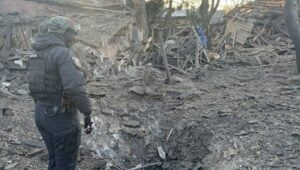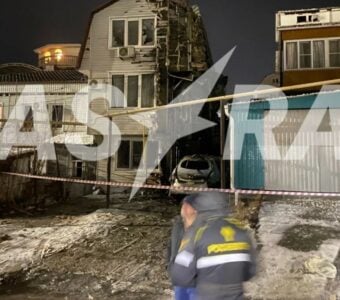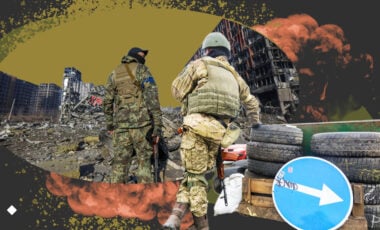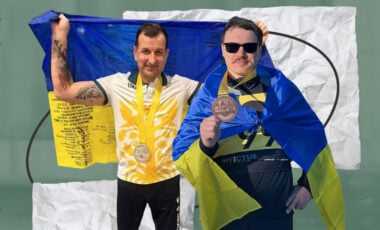Greenpeace and SaveDnipro call on EU to introduce sanctions against Russian nuclear corporations ROSATOM
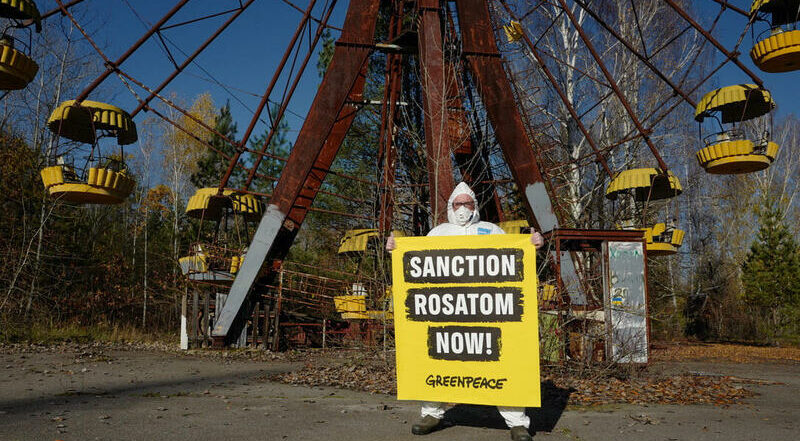
Due to the risk of radiation contamination from potential accidents at Ukraine's nuclear power plants amid Russia's strikes on the country's energy infrastructure, Greenpeace, in collaboration with the Ukrainian civic organization SaveDnipro, has installed sensors to monitor and transmit information about radiation levels.
Greenpeace Central and Eastern Europe and SaveDnipro called for urgent sanctions against the Russian state nuclear corporation "Rosatom" after assessing the situation in Chornobyl, Zaporizhzhia, and other front-line cities in Ukraine's south, Rubryka reports.
The Russian nuclear corporation "Rosatom" has controlled the Ukrainian nuclear plant in the southern city of Enerhodar — Zaporizhzhia Nuclear Power Plant — since Russian forces occupied it in March 2022. On multiple occasions, Rosatom and Russian armed forces have jeopardized the power station's operation and safety.
Russia's attacks on Ukraine's energy sector increased the risks of nuclear disasters not only at the Zaporizhzhia NPP but also at other active nuclear reactors.
In March 2022, Russian armed forces attempted to seize the Southern Ukraine Nuclear Power Plant in the Mykolaiv region, but they were halted by the Armed Forces of Ukraine 30 km from the station. Moreover, rocket attacks occurred three weeks ago near the Khmelnytskyi nuclear plant, causing damage to administrative buildings at the station.
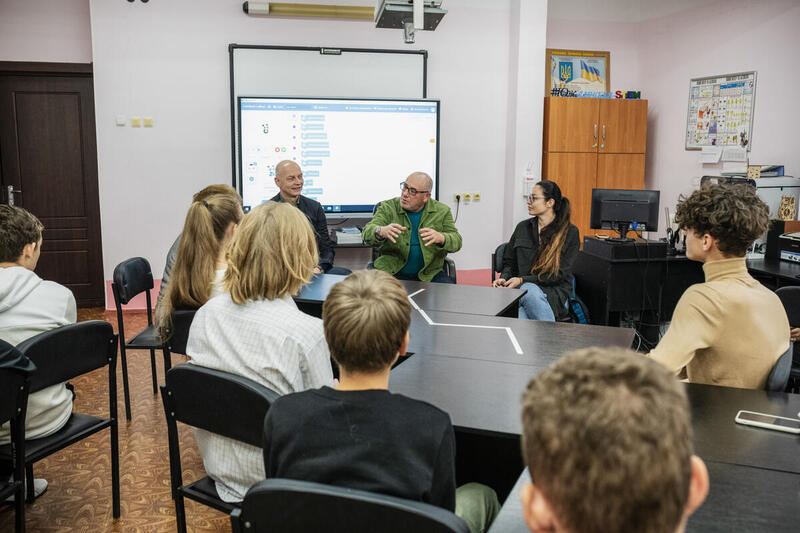
Photo: Tobias Muenchmeyer, Project Leader "Green Recovery of Ukraine" at Greenpeace, Shaun Burnie, Nuclear Energy Specialist at Greenpeace, Polina Kolodiazhna, Campaigner of the "Green Recovery of Ukraine" at Greenpeace
"With winter approaching, the risk of a nuclear catastrophe increases every day. It is infuriating that some EU countries still treat 'Rosatom' as a reputable business partner rather than a criminal nuclear blackmailer," says Shaun Burnie, a nuclear energy specialist at Greenpeace.
"The time has long passed for comprehensive sanctions against the Russian nuclear industry, particularly 'Rosatom.' European corporations like Framatome and Siemens, as well as governments with strong commercial ties to 'Rosatom,' primarily France and Hungary, directly fuel the Russian war against Ukraine and its people. Sanctions that put an end to nuclear trade with Russia are necessary," Burnie continues.
Sanctions against "Rosatom" have been supported by the Ukrainian government and the governments of five EU countries but are consistently blocked by the EU nuclear industry and the governments of countries cooperating with "Rosatom." The immediate need for sanctions is driven by the violation of the safety of Ukraine's nuclear power plants and the potential threat of a nuclear catastrophe.
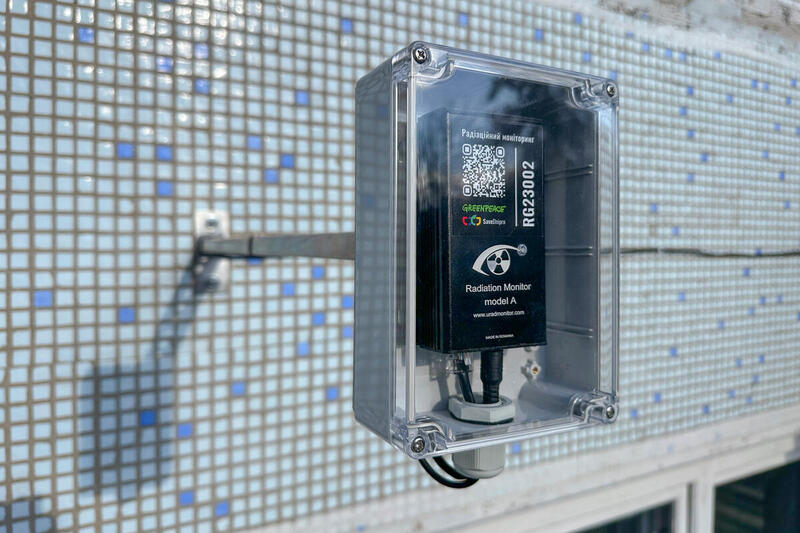
One of the sensors installed by Greenpeace and SaveDnipro in Ukraine's south
Safety and protection protocols were already violated during the Russian occupation of Zaporizhzhia NPP.
Emergency response and safety mechanisms no longer function, and International Atomic Energy Agency (IAEA) inspectors provide extremely limited information about the condition of the facility. The threat of further destructive actions and ecological war crimes by Russian forces, combined with the constant risk of power loss, endangers several regions, Ukraine as a whole, and even neighboring countries.
Radiation sensors installed by Greenpeace and SaveDnipro will serve as early warnings of increased gamma radiation levels in the event of a new nuclear catastrophe in Ukraine. The sensors transmit real-time radiation level data to the SaveEcoBot online map.
They are strategically located in significant cities: Zaporizhzhia, Yuzhnoukrainsk, Odesa, Yuzhne, Tarutyne, and Uman.
The placement was discussed and agreed upon with local communities and regional authorities responsible for responding to nuclear emergencies.
"Sensors cannot stop radiation, but they can provide extremely important information that can save lives in the event of a possible deliberate nuclear catastrophe. By listening to the voices of local authorities and politicians in Ukraine's south, Greenpeace supports the people of Ukraine. Working alongside local authorities and organizations, we strengthen our ability to track and respond to nuclear catastrophe risks," said Jan Vande Putte, a radiation expert at Greenpeace.
Radiation sensors from Greenpeace and SaveDnipro will assist government organizations in creating additional protection for the local population.
"Over the last 20 months of full-scale war, Russian forces have repeatedly attacked Ukrainian nuclear facilities and spread false information about radiation levels in Ukraine. This has caused global concern about safety in the country," says Pavlo Tkachenko, technical director and co-founder of SaveDnipro. "To address this problem, it is necessary to develop independent online information sources and transparent radiation monitoring tools in the form of civic projects, like our SaveEcoBot. Such tools help the population learn that the radiation level in the country remains normal and, in case of potential problems, provide government organizations with additional data to make informed decisions."
According to European Union law, new standards for protecting humans from the effects of ionizing radiation will be introduced in Ukraine.




